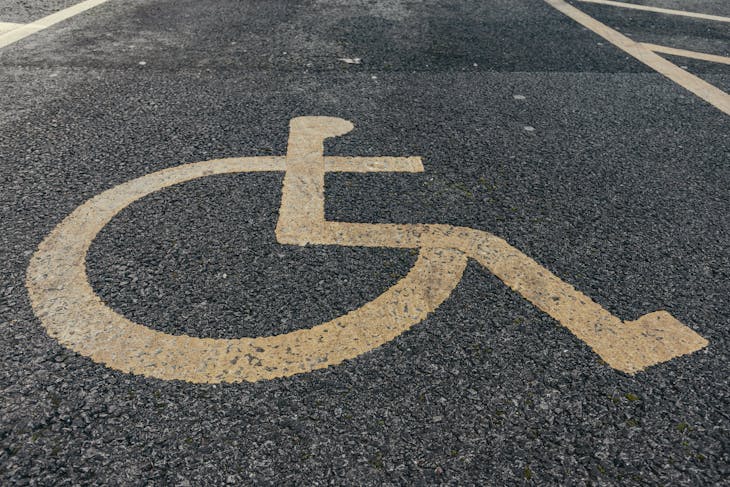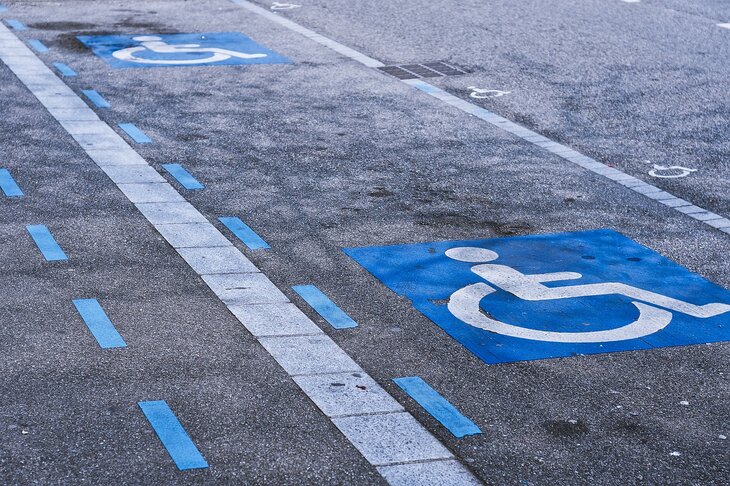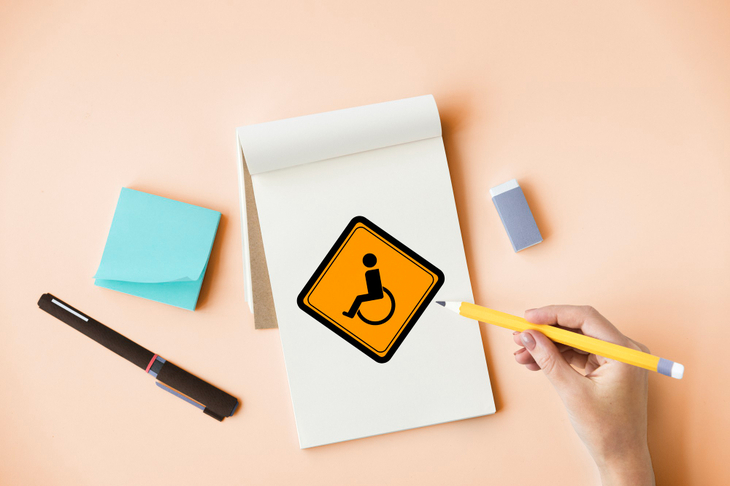Sorting out the ins and outs of getting a handicap parking permit in Maine can feel overwhelming at first glance. But don’t worry, we’ve got you covered! This comprehensive guide will walk you through the process, clarify the requirements, and show you how easy it is to get a handicap placard in Maine.
Whether you’re applying for yourself or someone else, knowing the steps will ensure a smooth application experience. Additionally, we’ll cover tips, common FAQs, and other essential information that can make life easier for individuals with disabilities. So let’s dive in and break it down step by step.
What Is a Handicap Permit and Why Do You Need It?
A handicap permit, also known as a disabled parking placard or a disability parking permit, provides special parking privileges for people with qualifying disabilities. With this permit, you’ll be able to park in designated accessible parking spaces, which are typically located closer to building entrances.
These spaces make it easier for people with mobility impairments to go through their daily routines and access public or private facilities without additional physical strain.
Qualifying for a Handicap Permit in Maine
First things first: Do you qualify for a handicap permit in Maine? The state has specific eligibility criteria you must meet to apply for a permit. So, let’s take a closer look at these requirements.
Maine grants handicap permits to people with certain medical conditions that limit their mobility or ability to perform daily tasks. Here’s a list of the most common qualifying conditions:
- Inability to walk 200 feet without rest: If you find walking short distances difficult without a break, you may qualify.
- Lung disease or respiratory issues: Severe lung conditions impacting your ability to breathe or requiring you to use portable oxygen may also qualify.
- Use of a wheelchair or assistive devices: If you use crutches, a cane, braces, or a wheelchair for mobility, you are eligible.
- Heart disease: Specific types of heart conditions, classified as Class III or IV by the American Heart Association, can qualify for a permit.
- Severe arthritis, neurological, or orthopedic conditions: These conditions that limit mobility or joint function may also make you eligible.
- Blindness or low vision: If you are legally blind or have a severe visual impairment, you can apply for a permit.
It’s important to note that a licensed healthcare provider must complete the medical certification you need for your application. This warrants your condition meets the state’s disability criteria.
Types of Handicap Permits in Maine
Maine offers a few different types of handicap permits to accommodate several levels of need. Depending on the nature and duration of your disability, you can apply for one of the following:
1. Temporary Handicap Placard:
This placard is ideal for people with temporary disabilities, such as a broken leg or post-surgical recovery. Moreover, temporary permits are valid for up to six months, and you can renew them if your condition persists.
2. Permanent Handicap Placard:
If you have a long-term or permanent disability, you’ll want to apply for a permanent placard. These permits are valid for four years but you can renew them without needing a new medical certification.
3. Disability License Plates:
For those who own a vehicle and have a permanent disability, Maine also offers the option of disability license plates. In like manner, these plates grant the same privileges as the placard but are attached to your vehicle. Keep in mind that you can only have either the license plates or a placard, but not both.
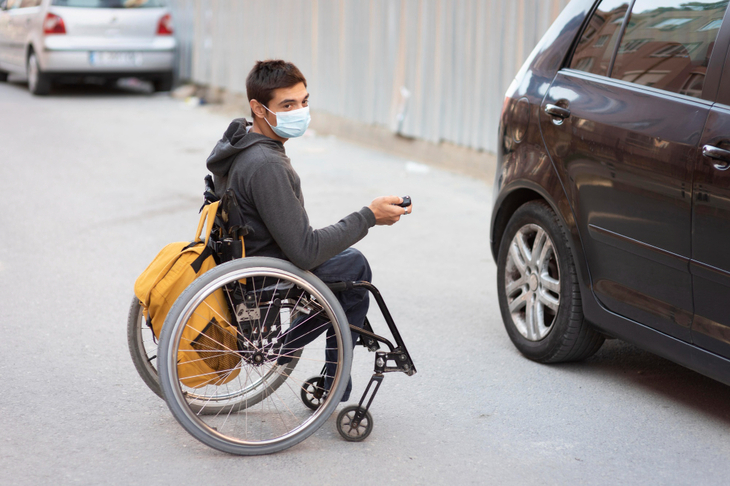
Step-by-Step Application Process for a Handicap Permit in Maine
Now that you know the different types of permits, let’s break down the application process step by step.
Step 1: Obtain the Application for Disability Plates/Placards
The first step is downloading the Application for Disability Plates/Placards (Form PS-18) from the Maine Bureau of Motor Vehicles (BMV) website. Alternatively, you can pick up a copy of the form at your local BMV office.
This form requires basic information about you (or the person applying), as well as details regarding the nature of the disability.
Step 2: Get Medical Certification from a Healthcare Provider
Once you have the application, you’ll need to get it certified by a healthcare provider. This can be your doctor, a nurse practitioner, a chiropractor, or any other licensed medical professional familiar with your condition.
Likewise, the healthcare provider must fill out and sign the certification section of the form, verifying that you have a qualifying disability.
Step 3: Submit the Application
With the form complete, you’re ready to submit it to the Maine BMV. There are two ways to do this:
- Mail: You can mail or fax the completed form to the Maine Bureau of Motor Vehicles Disability Unit.
- In Person: You can also submit the form at your local BMV office.
Unfortunately, Maine does not currently offer an online application option for handicap placards, so either mail or in-person submission is required.
Step 4: Wait for Approval
Once you submit the handicap permit application, it normally takes 10 to 14 business days for processing. If you get approval, you will receive your Maine handicap placard in the mail.
Where Can You Use Your Handicap Permit?
Your handicap permit isn’t just limited to Maine! One of the best things about the permit is that it’s recognized across all 50 states, as well as in some parts of Canada. This means you’ll be able to access disabled parking spaces no matter where you travel within the U.S.
However, it’s always a good idea to double-check local laws when visiting another state, as some states have additional parking regulations or fees for disabled parking spaces.
Parking Benefits and Privileges with a Handicap Permit
So, what benefits does having a handicap permit provide? Here are a few perks that can make life a bit easier for those with disabilities:
- Access to designated parking spaces: These spots are usually closer to building entrances, making it easier to get in and out of locations quickly and with minimal physical strain.
- Extended parking time: Some areas allow people with a handicap permit to park longer at metered spots without paying. Always check local signage to confirm the rules.
- Parking fee exemptions: In many locations, Maine handicap parking permit holders are exempt from paying parking fees. Although, this may vary depending on the city or town.
- Greater accessibility in crowded areas: Whether at a shopping mall, hospital, or government building, having a handicap permit guarantees you better access to parking.
How to Renew or Replace Your Handicap Permit in Maine
Renewal Process
If you hold a temporary placard, you must renew it if your disability persists beyond the original expiration date. Not to mention that renewing a temporary placard requires a new medical certification. For this matter, you’ll follow the same process as the original application.
For permanent placards, the renewal process is more simple. The BMV will send you a renewal notice before your permit expires, and you can renew it without needing to submit new medical documentation. Yet, you still need to submit the renewal application form on time.
Replacing a Lost or Stolen Permit
What happens if your handicap placard is lost, stolen, or damaged? Don’t panic! You can request a replacement by filling out the same application form and selecting the box for “Replacement” on the form. You won’t need to get a new medical certification for a replacement.
Penalties for Misusing a Handicap Permit
Handicap permits are designed to assist those who genuinely need them, and misusing them can result in penalties. For example, misuse can include:
- Using someone else’s placard when the permit holder isn’t in the vehicle
- Using a deceased person’s placard
- Lending your placard to someone without a qualifying disability
- Parking in a disabled parking space without proper authorization
Penalties for misuse can include fines, revocation of the permit, or even criminal charges in severe cases. It’s essential to use your permit responsibly and only when necessary.
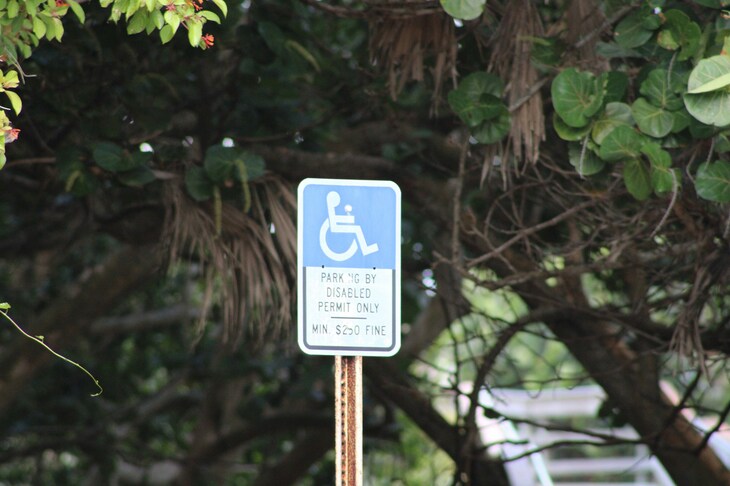
How to Appeal if Your Application Is Denied
While the process of applying for a handicap permit in Maine is straightforward, there are cases where applications may be denied. Reasons for denial can range from incomplete paperwork to the healthcare provider not verifying the extent of the disability properly. If this happens to you, don’t give up! You have the right to appeal.
Steps to Appeal a Denied Application
1. Review the Denial Reason:
Start by understanding why your application was denied. The BMV will usually send a letter explaining the reason for the denial. This could be due to missing information, medical documentation issues, or errors in the application form.
2. Correct and Resubmit Your Application:
Often, a simple correction is all that’s needed. Double-check the application, and make sure all medical forms are accurate and you filled out all fields correctly. If your healthcare provider missed something, contact them to clarify and provide more detailed information.
3. File an Appeal:
If you believe your denial was unjustified, you can formally file an appeal with the Maine BMV. In this case, you must submit additional medical documentation or supporting documents that verify your qualifying disability. As well, an appeal may involve an administrative review where your case will be reconsidered based on the new information provided.
4. Seek Legal Advice:
If your appeal is rejected again, you may want to consult with an attorney specializing in disability rights. They can help you navigate the appeals process and ensure that your rights are being upheld.
Resources and Support for Disabled Drivers in Maine
Living with a disability comes with its own set of challenges, and navigating everyday tasks can sometimes require additional assistance. Thankfully, Maine offers a variety of resources and support for disabled drivers beyond just parking permits.
Maine Bureau of Rehabilitation Services
The Maine Bureau of Rehabilitation Services (BRS) offers a range of programs to help individuals with disabilities lead more independent lives. Services include vocational training, job placement assistance, and disability advocacy.
While it’s not directly related to driving, the BRS can assist individuals in finding adaptive technologies or workplace accommodations that improve mobility and accessibility.
Accessible Transportation Options
For disabled individuals who don’t drive or need assistance with transportation, Maine provides options through public transit systems. Most public buses in Maine are wheelchair-accessible, and paratransit services are available for individuals who can’t use standard public transportation.
Additionally, many local transportation services, such as Logisticare, offer non-emergency medical transportation services for individuals with disabilities who need rides to medical appointments.
Adaptive Vehicle Equipment
If you’re a disabled driver in Maine and require adaptive equipment to operate a vehicle, there are programs available to help offset the cost. The Vehicle Modification Program, offered through the Maine BMV, helps those with disabilities install necessary modifications like hand controls, wheelchair ramps, or specialized steering systems in their vehicles.
By reaching out to these organizations and services, disabled individuals in Maine can find additional support to live more independently and handle daily life easier.
Frequently Asked Questions (FAQs) About Handicap Permits in Maine
Can I Get Multiple Handicap Placards in Maine?
No, Maine only allows one placard or set of disability license plates per person. If you own more than one vehicle, you must transfer the placard between cars as needed.
Can I Use My Maine Handicap Permit in Another State?
Yes! Your Maine-issued handicap permit is valid in all 50 states and can be used while traveling.
Is Handicap Parking Free in Maine?
While some areas in Maine offer free parking for handicap placard holders, not all locations do. So, always check local signage to confirm whether fees are required.
Getting a Handicap Permit in Maine: Final Thoughts
Getting a handicap placard in Maine is simple when you know the steps. From understanding the eligibility requirements to submitting your application, this guide covers everything you need to make the process as smooth as possible.
Whether dealing with a temporary condition or a permanent disability, having a handicap permit will allow you to access designated parking spaces and make daily life a little easier.
If you need assistance with getting your Maine handicap placard easily and safely, we can help you!
Featured image by Pixabay

